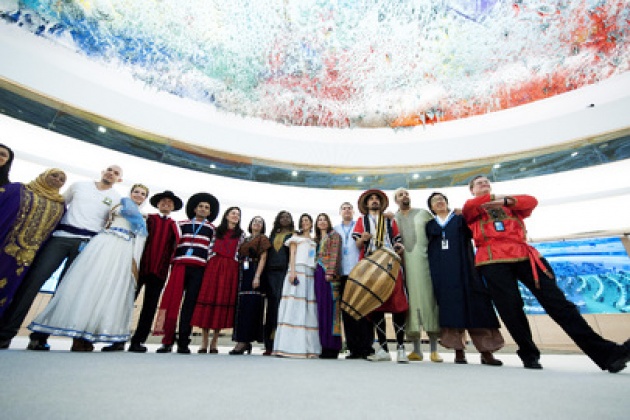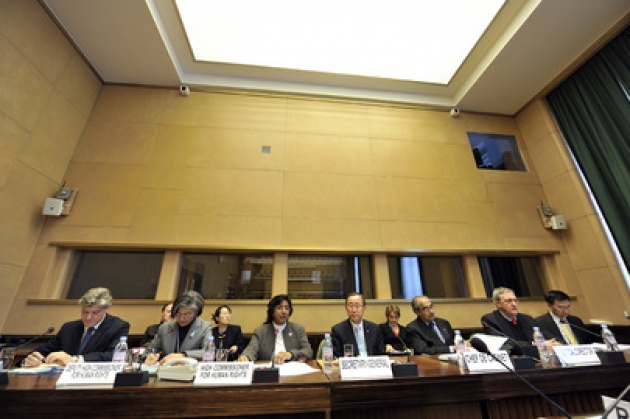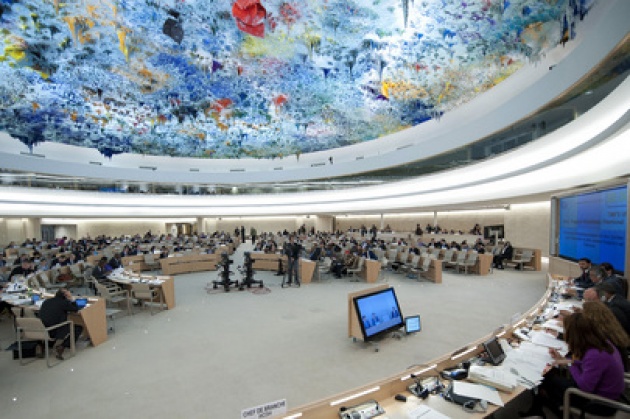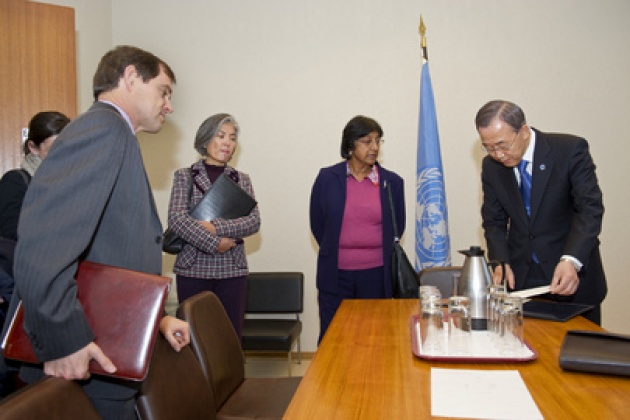
“Strengthening the Human Rights Treaty Body” is the title, but it assumes a broad evaluation and consequent recommendations. The 10 human rights treaty bodies which make up the system are committees of independent experts that periodically examine the implementation of all treaties that State parties have ratified under international law. Produced by her office, High Commissioner, Navi Pillay, stated that the establishment of the treaty bodies and the evolution of the treaty body system is one of the greatest achievements in the efforts of the international community to promote and protect human rights – but requires better resourcing, as well as a more streamlined and efficient approach. The associated news release speaks of strengthening rather than reforming the system, which has doubled in size since 2000. “The ultimate objective of this process was to take stock of the challenges and improve the impact of treaty bodies on States parties and individuals or groups of individuals at the national level by strengthening their work while fully respecting their independence.”

Video & New Media as Tool:
“In doubling the size of the human rights treaty body system under these new instruments, there has been chronically insufficient attention given to properly resource this fundamental human rights mechanism,” said Ms. Pillay. To create a more efficient and streamlined approach to the treaty body system, the High Commissioner proposed the use of a reporting calendar, so that every report is reviewed on time, with the hope that this will result in equal treatment of all States. Ms. Pillay also recommends the utilization of new technologies, including webcasting and videoconferencing to increase visibility and accessibility to these treaty bodies. (The Statement from the High Commissioner is attached below). Also see our Blog for Film from 2 months earlier outlining the final preparation of the Report: - “Harmonizing/Strengthening Human Rights Treaty Bodies”

Applying/Developing Shared Standards:
UNSG Ban Ki-moon said that the treaty body system “provides authoritative guidance on human rights standards, advises on how treaties apply in specific cases, and informs States parties on what they must do to ensure that all people enjoy their human rights. ”To further familiarize yourself as to how the UN Human Rights Treaty System Works, Below are Links to 3 Concise but Highly Informative Videos for Blog from UN:
--- “Human Rights Treaty Body”
Ambassador Muhamed Sacirbey - FOLOW mo @MuhamedSacirbey
Facebook-Become a Fan at “Diplomatically Incorrect”
Twitter – Follow us @DiplomaticallyX
See more at our Popular Video Blogs & Current News Event Articles at http://diplomaticallyincorrect.org/c/war-crimes-justice
LINK to OHCHR Statement & Report:

STATEMENT:
“The establishment of the human rights treaty bodies and the evolution of the treaty body system is one of the greatest achievements in the efforts of the international community to promote and protect human rights,” United Nations High Commissioner for Human Rights Navi Pillay said in her report on the strengthening of the human rights treaty body system (PDF). Pillay confirms in her report that this very system is in a crisis and cannot be sustained without the immediate action to help strengthen and improve it.
The ten human rights treaty bodies are committees of independent experts that periodically examine the implementation of all treaties that State parties have ratified under international law.
“The system provides authoritative guidance on human rights standards, advises on how treaties apply in specific cases, and informs States parties or what they must do to ensure that all people enjoy their human rights,” United Nations Secretary-General Ban Ki-moon said in the introduction to her report.
In order to strengthen the treaty body system, Pillay’s 100-page report provides recommendations to enhance the visibility of the human rights treaty system and its accessibility to individuals and communities throughout the world who need it the most. “In late 2009, I called upon all stakeholders to embark upon a process of reflection on ways to strengthen the treaty body system,” Pillay said.
The report focuses on strengthening the system rather than reforming it. “Lessons learned from previous reform initiatives have led me to base this process on the premise that the legal parameters of the treaties should not be altered,” Pillay said.
According to her report, the treaty body system has nearly doubled in size since 2000. The system has seen a growth in treaty bodies and its members, as well as an increase in the amount of reports submitted by States and individuals, although only 16% of States parties report strictly on time. The system also features several new tools to promote human rights.
Unfortunately, the resources needed to sustain this complex system have stayed the same. “In doubling the size of the human rights treaty body system under these new instruments, there has been chronically insufficient attention given to properly resource this fundamental human rights mechanism,” Pillay said. “At a time when human rights claims are increasing in all parts of the world, it is unacceptable that the system can only function because of State’s non-compliance to their reporting obligations,” she said.
The report presented key recommendations to create a more efficient and streamlined approach to the treaty body system. Pillay proposed the use of a reporting calendar, so that every report is reviewed on time. Pillay hopes that this will result in equal treatment of all States.
Her report also recommended the utilization of new technologies, including webcasting and videoconferencing to increase visibility and accessibility to these treaty bodies. “Technology can and should serve human rights,” Pillay said.
“The ultimate objective of this process was to take stock of the challenges and improve the impact of treaty bodies on States parties and individuals or groups of individuals at the national level by strengthening their work while fully respecting their independence,” Pillay said. She added that it was absolutely made clear through the process that “the approach of absorbing new mandates within existing resources is not sustainable.”



